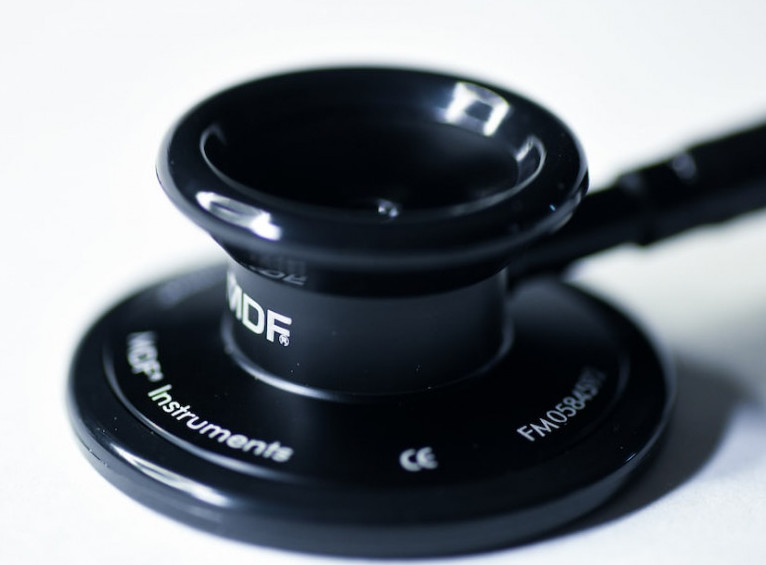Cardiovascular Health for Seniors through Fitness and Exercise—
Senior citizens can greatly benefit from senior fitness and exercise, as it can significantly improve their overall quality of life and help manage or prevent a variety of health conditions commonly associated with aging. While this blog is focused on seniors wthout disabilities, we will be focusing future articles specific to fitness for seniors with disabilities.
In this article, we will explore the benefits of exercise and fitness for seniors, like chair, water, and aerobic exercises. We will be focusing on cardiovascular health, and provide practical solutions, exercises, and over-the-counter (OTC) medication options to support their well-being.

Benefits of Cardiovascular Exercise for Seniors
Cardiovascular health is of paramount importance, especially for seniors. Regular exercise can bring about several benefits, such as:
a. Strengthening the Heart Muscle: Engaging in cardiovascular exercises like walking, swimming, or cycling helps improve the efficiency of the heart, making it more robust and better at pumping blood throughout the body. As with anything fitness related, consistency and staying with it is key.
- Walking: Depending on your current level, set a specific numer of steps and do them preferably during your training, or at the very least throught the day.
- Swimming: Depending on your current level, set up a schedule for swimming. It can be separate from your daily training. Or if your level doesn’t allow for swimming, take advantage of the pool or a walking pool – walk through the water for a porolonged period of time or laps.
- Cycling: Depending on your current level: Bike riding can actually be fun. Ride through the neighborhood periodically during a specific consistent periodduring your week. Or, take advantage of a stationary bike and make it part of your daily workout. Start slow with a manageable base level to start and increase over time.
b. Lowering Blood Pressure: Exercise has been proven to reduce high blood pressure, which is a common issue among seniors. Maintaining healthy blood pressure levels reduces the risk of heart disease and stroke.
c. Reducing the Risk of Heart Disease: Regular physical activity can lower the levels of bad cholesterol (LDL) and increase the levels of good cholesterol (HDL), reducing the risk of heart disease.
d. Preventing Heart Attacks and Strokes: Exercise plays a crucial role in preventing heart attacks and strokes by promoting better circulation and reducing the buildup of plaque in arteries.
Solutions for Cardiovascular Health in Seniors
a. Consult with a Healthcare Provider: Before beginning any exercise program, seniors should consult with their healthcare provider to ensure that they are medically fit for exercise.
- Engage with a trainer or a group class with a good instructor to help you set your program.
b. Start Slowly and Progress Gradually: Seniors who have not done so should ease into exercise, starting with low- intensity activities and gradually increasing the intensity and duration. This helps prevent injuries and allows the body to adapt. I think this also applies to seniors like myself, who is in good shape to keep in consideration as maintain our current levels, that is it ok to go slow as progress and stay consistent. Remember, the goal is to make it part of your lifestyle.
intensity activities and gradually increasing the intensity and duration. This helps prevent injuries and allows the body to adapt. I think this also applies to seniors like myself, who is in good shape to keep in consideration as maintain our current levels, that is it ok to go slow as progress and stay consistent. Remember, the goal is to make it part of your lifestyle.
c. Incorporate Aerobic Exercise: Aerobic exercises such as brisk walking, swimming, dancing, and cycling are excellent for cardiovascular health. Aim for at least 150 minutes of moderate-intensity aerobic exercise per week.
d. Strength Training: Including strength training exercises, like lifting weights or resistance band workouts, can help seniors build muscle and further support their cardiovascular health.
e. Stay Hydrated: Proper hydration is essential during exercise. Seniors should drink water before, during, and after their workouts to stay hydrated.
f. Warm-Up and Cool Down: Begin each exercise session with a warm-up and end with a cool-down to prepare the body for exercise and reduce the risk of muscle strain or injury.
OTC Medication Options for Cardiovascular Health
While exercise is a powerful tool for improving cardiovascular health, some seniors may require OTC medications as part of their treatment plan. It’s crucial to consult with a healthcare provider before using any OTC medications. Here are some common OTC options for maintenance and discomfort post exercise relief:
Maintenance
a. Aspirin: Low-dose aspirin can be recommended by a healthcare provider for seniors at risk of heart attacks or strokes. It helps to prevent blood clots.
b. Fish Oil Supplements: Omega-3 fatty acids found in fish oil supplements may have a positive impact on heart health by reducing triglyceride levels and improving blood vessel function.
c. Antioxidant Supplements: Antioxidants like Coenzyme Q10 (CoQ10) and Vitamin E may provide cardiovascular benefits by reducing oxidative stress and inflammation.
d. Blood Pressure Monitors: OTC blood pressure monitors can help seniors monitor their blood pressure at home. Regular monitoring can aid in managing hypertension.
e. Cholesterol-Lowering Supplements: Plant sterols and stanols, available in supplement form, can help lower LDL cholesterol levels when used in combination with a heart-healthy diet.
Discomfort relief
Over-the-counter (OTC) options for senior pain and discomfort during and after exercise can provide relief and support for their physical well-being. Here is a list of OTC options that seniors can consider:
Nonsteroidal Anti-Inflammatory Drugs (NSAIDs):
- Ibuprofen (Advil, Motrin)
- Naproxen (Aleve)
- Aspirin
These OTC below medications can help reduce pain and inflammation associated with exercise-related discomfort. Seniors should follow dosing instructions and consult with a healthcare provider, especially if they have underlying medical conditions or are taking other medications.
- Topical Analgesic Creams and Gels:Topical creams containing ingredients like menthol, capsaicin, or salicylates can be applied directly to sore muscles or joints for localized pain relief. Examples include Icy Hot and Bengay.
- Acetaminophen (Tylenol): Acetaminophen is an analgesic that can help relieve pain without the anti-inflammatory properties of NSAIDs. It may be a safer option for seniors who cannot tolerate NSAIDs due to stomach issues or other concerns.
- Arnica Gel or Cream: Arnica is a natural remedy believed to have anti-inflammatory properties. Arnica-based topical products can be applied to areas of soreness or bruising.
Glucosamine and Chondroitin SupplementsThese dietary supplements are commonly used to support joint health and may help reduce joint discomfort. It’s advisable for seniors to consult with their healthcare provider before starting any new supplement regimen.(Already reviewed in a separate blog)
There are a number of other solutions that involve:
Epsom Salt Baths (To be reviewed under a separate blog)
Compression Sleeves or Braces (Already reviewed in a separate blog)
Heat and Cold Therapy (To be reviewed under a separate blog)
Hydration and Electrolyte Supplements (To be reviewed under a separate blog)
Rest and Recovery (To be reviewed under a separate blog)
Proper Nutrition (To be reviewed under a separate blog)
Orthotic Insoles (To be reviewed under a separate blog)
Conclusion
Exercise is a fundamental aspect of senior fitness and is particularly crucial for maintaining cardiovascular health. Seniors can experience significant improvements in their overall quality of life by incorporating regular exercise into their routines. Starting slowly, gradually increasing intensity, and consulting with healthcare providers are key steps to ensure safe and effective exercise. Additionally, OTC medications can complement exercise efforts, but their usage should be discussed with a healthcare professional. By embracing a holistic approach that combines exercise and medication where necessary, seniors can enjoy enhanced cardiovascular health and a higher quality of life as they age.


